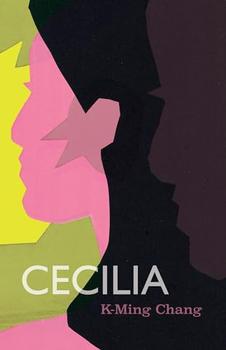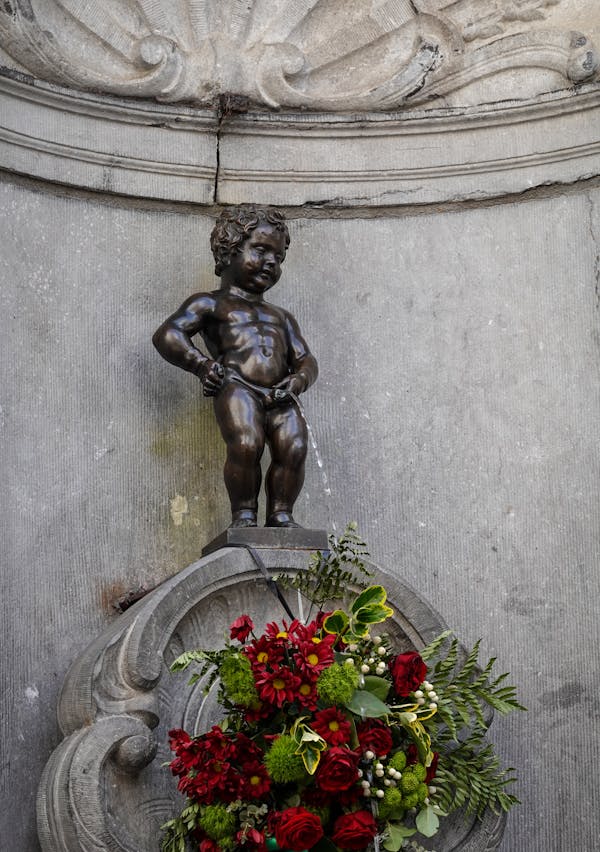Summary | Excerpt | Reviews | Beyond the Book | Read-Alikes | Genres & Themes | Author Bio

This article relates to Cecilia
 From the first pages of K-Ming Chang's novella Cecilia, narrator Seven is preoccupied with urine. She describes overhearing the strong flow of a chiropractor's urine in the toilet, and remarks upon the receptionist's quieter stream. She holds her own urine until her bladder "tautens into a grape of pain"; later, while dreaming of Cecilia, she wets the bed. Seven received her strange name because her mother drank nothing but 7-Up while she was in the womb, "until her piss thickened into syrup." At one point in a childhood flashback, inspired by a wilderness survival TV show, Cecilia urges Seven to pee in her mouth. (Seven misses and mostly soaks Cecilia's shirt.)
From the first pages of K-Ming Chang's novella Cecilia, narrator Seven is preoccupied with urine. She describes overhearing the strong flow of a chiropractor's urine in the toilet, and remarks upon the receptionist's quieter stream. She holds her own urine until her bladder "tautens into a grape of pain"; later, while dreaming of Cecilia, she wets the bed. Seven received her strange name because her mother drank nothing but 7-Up while she was in the womb, "until her piss thickened into syrup." At one point in a childhood flashback, inspired by a wilderness survival TV show, Cecilia urges Seven to pee in her mouth. (Seven misses and mostly soaks Cecilia's shirt.)
Urine may be a natural product of our bodies, but it's still heavily stigmatized. Public urination is frowned upon at best and illegal at worst; "scrubbing toilets" is synonymous with menial, unpleasant labor; losing control of one's bladder is seen as the height of indignity. As the unnamed survival TV show (likely Man vs. Wild) suggests, urine is occasionally drunk as a last resort by those lost and dehydrated in the wilderness (although this is highly inadvisable; as it turns out, there's a reason your kidneys expel it from your body).
In fiction, a character being unable to hold their bladder is usually a sign that something is seriously wrong. Consider The Exorcist, when Regan wanders the house in a daze before wetting herself in front of her mother's houseguests. Or Still Alice, where the protagonist's early-onset Alzheimer's makes her forget the location of her own bathroom. In both cases, it represents a sort of breakdown, prompted by the ravages of a deteriorating mind or by the intrusion of a demon. But in Seven's case, not urinating is a sign that something is wrong.
So what does Seven's fixation on urine say about her? Freud might say that her urine-holding habit is a kind of anal retentiveness, a manifestation of her general repression. (Despite the name, Freud's "anal stage" encompasses the bladder as well as the bowels.) When Seven wets her bed after an erotic dream featuring Cecilia, it's a neat symbol: no matter how hard Seven tries to control her urges, failure is inevitable. She has to pee sometime, just as her sexual desire will eventually require an outlet.
Even setting aside Freud — whose theories remain controversial, if not outright discredited — there's the fact of urine's stigma. It is considered a dirty thing, something hidden behind closed doors and euphemisms. Seven and Cecilia playing around with urine, with or without the plausible deniability of Cecilia's wilderness-show idea, demonstrates that they are kindred spirits despite their shame: Seven is willing to let Cecilia watch her do something intimate, and Cecilia is willing to consume an excretion from her friend's body. In the parlance of our times, they "match each other's freak," even if they don't realize it until the end of the story.
Image by Magda Ehlers
Filed under Cultural Curiosities
![]() This article relates to Cecilia.
It first ran in the June 5, 2024
issue of BookBrowse Recommends.
This article relates to Cecilia.
It first ran in the June 5, 2024
issue of BookBrowse Recommends.
Your guide toexceptional books
BookBrowse seeks out and recommends the best in contemporary fiction and nonfiction—books that not only engage and entertain but also deepen our understanding of ourselves and the world around us.